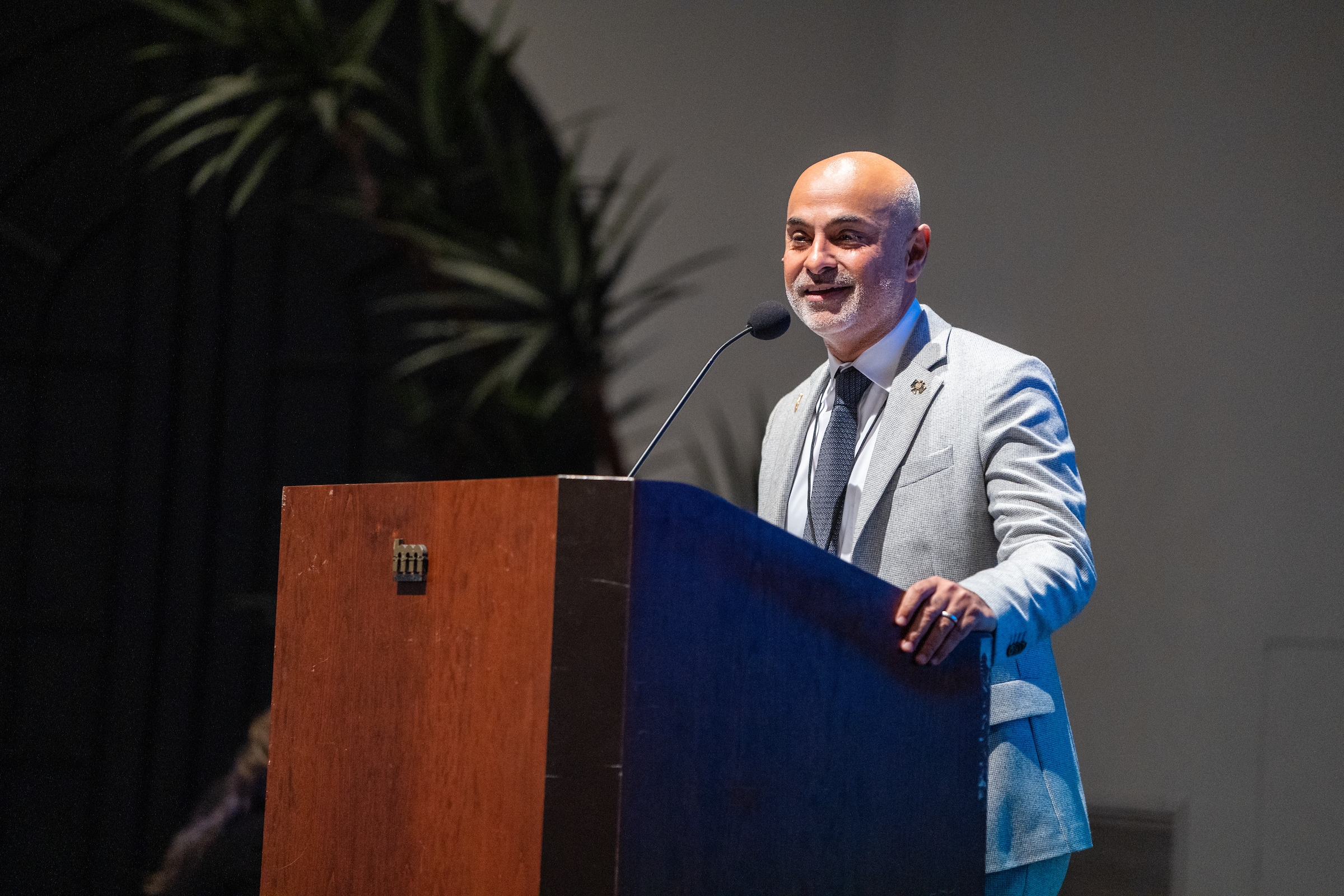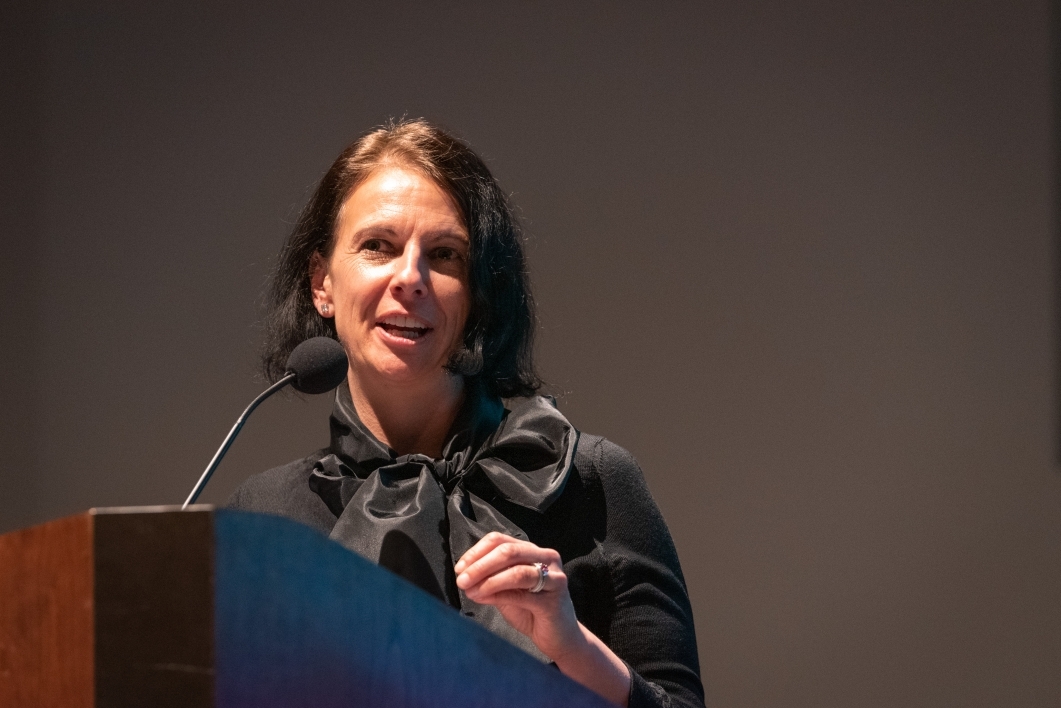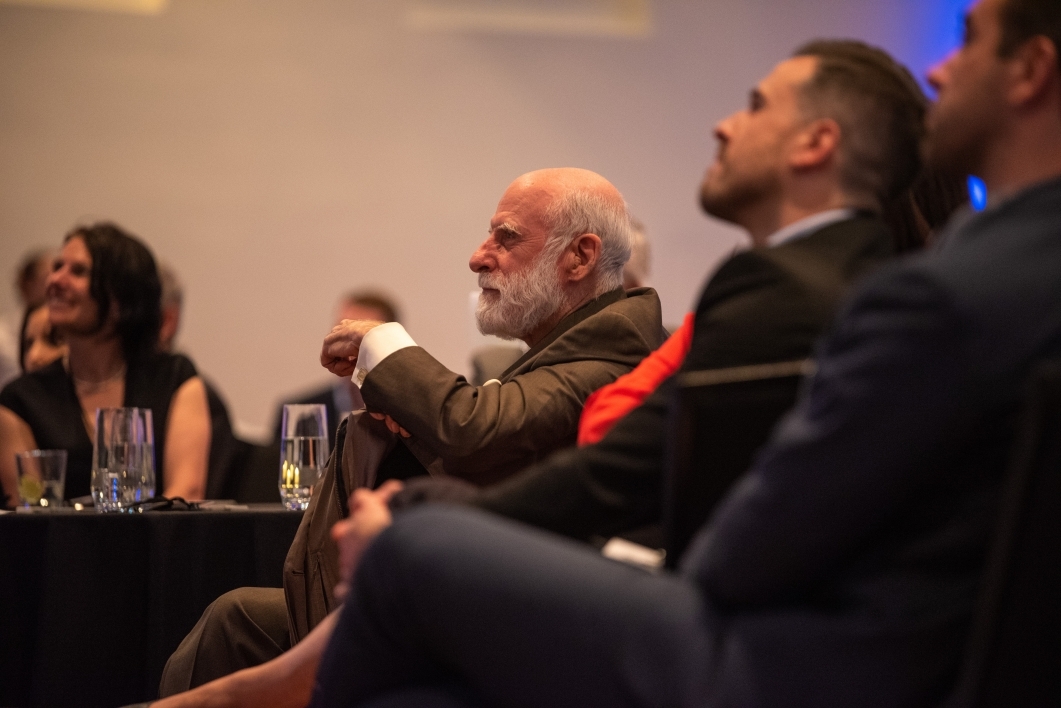Finding intelligent solutions to the digital divide
Experts from around the world came together in Phoenix to address digital inequity at Smart Region Summit
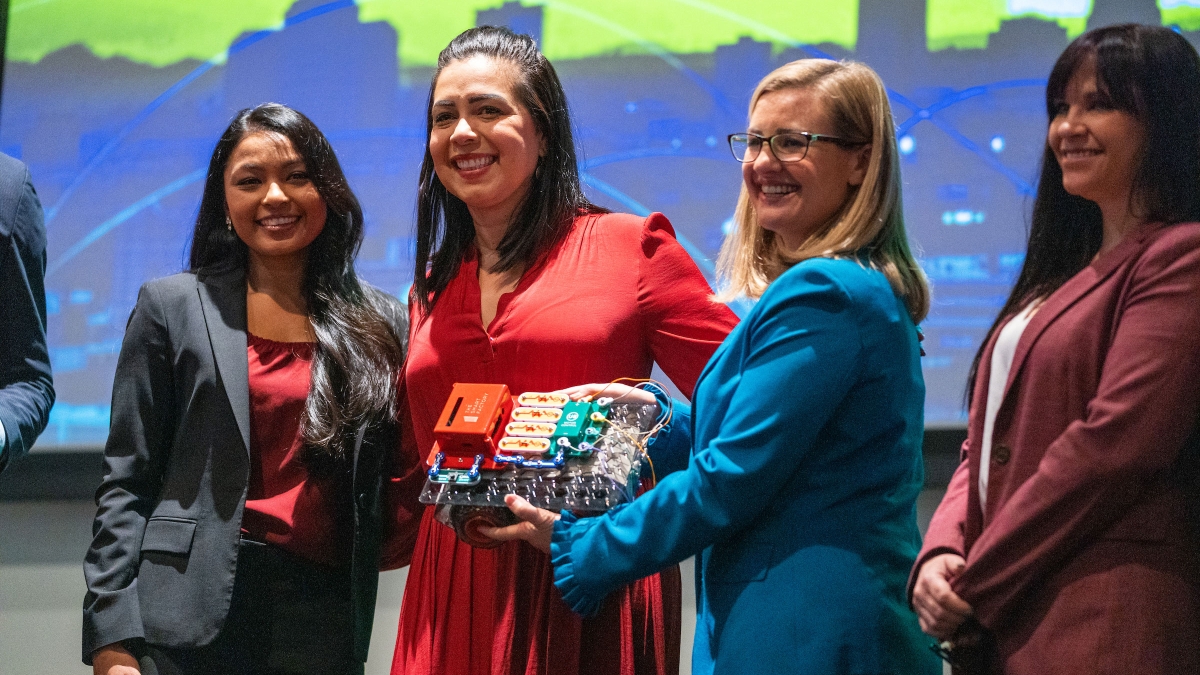
Lack of access to computers and cellphones. No internet. Computer illiteracy.
Dubbed the digital divide, these global challenges were tackled on Wednesday by panelists at Arizona State University’s Smart Region Summit. Now in its fifth year, the event took place at the Heard Museum in downtown Phoenix with a focus on digital inclusion.
The issue impacts impoverished communities and other marginalized groups.
“Having connectivity matters right?” said Nicol Turner Lee, a senior fellow at the Center for Technology Innovation at the Brookings Institution. Lee spoke during a panel on "Digital Equity and Inclusion Around the World."
“It matters in terms of where you live. It still matters in terms of accessibility, availability and literacy, but it always matters for you to actually have a full-fledged digital citizenship,” Lee said.
The event brought together a diverse group of local, national and international smart-city experts, educators, technologists, faculty and leaders to discuss the role that smart technology plays in creating smart cities and impacting quality-of-life factors such as education, work and community building.
Panelists presented unique insights and discussed the solutions necessary to create smart cities that are inclusive — solutions like building infrastructure, collaboration, and philanthropic and public sector funding.
In a panel titled "Act Locally, Think Globally," Phoenix Mayor Kate Gallego discussed the advances Phoenix has made in the use of technology for this month’s Super Bowl LVII.
“When you come into Sky Harbor, this will be the first Super Bowl where you can basically have a robot taxi take you from Sky Harbor to downtown,” Gallego said.
Sanjeev Khagram, dean of ASU’s Thunderbird School of Global Management, moderated the panel, which also touched on the Thunderbird School's partnership with Kenya. The country's "Silicon Savannah" has become a smart-city platform that has leveraged technology to provide opportunities for the country and entire region.
Matthew Rantanen, the director of technology for the Southern California Tribal Chairmen’s Association, gave the keynote speech. He shared his story of bringing digital equity and access to tribal lands across the U.S.
Rantanen has been described as a cyber warrior for tribal broadband. He has worked for more than 20 years to bring tribes from all over the country together through what he calls Broadband Bootcamp.
“There are tribes that have traditionally never worked together because of their previous political arguments. Now they are working together and sharing resources. They're sharing staff, they're sharing equipment and working together to develop networks,” Rantanen said.
Attendees hailed from fields such as academia, government and private and nonprofit industries, including Vinton G. Cerf, vice president and chief internet evangelist for Google. At the top of the event, Deloitte and Amazon Web Services announced a donation of smart rover kits for students in the Roosevelt Elementary School District.
According to Lev Gonick, chief information officer for ASU Enterprise Technology who co-founded the event in 2019, “closing the digital gap is not just a matter of providing access to technology, but rather a call to action to expand and enhance our digital resources in order to empower and uplift all members of our community.
“It requires a collective effort to create an inclusive and accessible digital future that ensures individuals of all backgrounds are able to succeed in a rapidly evolving digital world.”
Reflecting on the event after the panels, Diana Bowman, associate dean of applied research and engagement at ASU’s Sandra Day O’Connor School of Law and panel moderator, said, “We have people on the stage and in the audience who are from all across the U.S., as well as the number of people who have flown in from around the world.
“And to me that highlights how successful this event has become. It's one of the events to come to when you actually want to develop solutions ... and I think it's really put ASU on the map in terms of being a thought leader around smart city, smart campuses and engagement.”
Top photo: Phoenix Mayor Kate Gallego holds a smart rover kit, which was part of a donation to Roosevelt Elementary School District Superintendent Dani Portillo (center) during the fifth annual Smart Region Summit at the Heard Museum in Phoenix on Feb. 1. Photo by Samantha Chow/ASU
More Law, journalism and politics

School of Politics and Global Studies director's new book explores mass violence
Why do people commit atrocities and why are certain groups, including religious and ethnic, more vulnerable to large-scale violence? These questions are explored in a new book by Güneş Murat Tezcür…

ASU faculty contributing to improvement of Wikipedia
Many academics have a love-hate relationship with Wikipedia. While the website has information about almost anything you can imagine, the credibility of that information is sometimes suspect. Tracy…
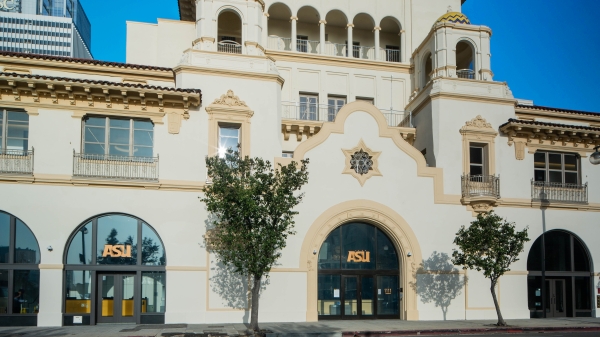
ASU Law students gain vital experience through Los Angeles location
Students at the Sandra Day O’Connor College of Law at Arizona State University may be concentrated in the school’s downtown Phoenix headquarters, but they have more choices than ever when it comes to…
